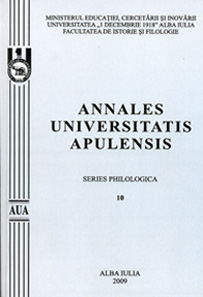MYTHOLOGIE, MAGIE ET SCIENCE
MYTHOLOGY, MAGIC AND SCIENCE
Author(s): Ion VezeanuSubject(s): Cultural history
Published by: Universitatea »1 Decembrie 1918« Alba Iulia
Keywords: mythos and logos; scientific conceptions; initiation processes; mythological belief; scientific truth
Summary/Abstract: Traditionally, the philosopher distinguishes between two types of rationality: the mythos and the logos. This dichotomy has been imposed by the pre-Socratics, but has been clarified systematically by Plato. The initial program (of discrimination between irrational and rational, belief and science, fiction and logic, imaginary and conceptual) had as goal to assure the truth of the rational, scientific knowledge also by a process of secularization. We know a lot of symptoms of this transition, from the mentalities of archaic, mythological and magic-religious type, towards rationalistic, scientific conceptions (to see positivists of the world): the passage of the initiation processes to methods of education, from the oral style to the written style, from the mythological belief to the scientific truth, etc. But what is less known is that this process was quite long, that it does not end, as one might think, with the positivism of the 19th century. Moreover, we think that the process of secularization, the separation between the sacred and the profane, between belief and reason, between religion and science failed. Thus, we observe massive phenomena of emergence of magic, alchemical and evident mythological conceptions in areas one would less expect to discover: in the exact sciences and in the contemporary techno-sciences. The trans- and interdisciplinarity allow us to understand this fact. However, the explanation is much deeper. It is not by chance that one speaks of “convergence technoscientifique”. What we want to demonstrate here is the fact that: the principles and the magic conceptions specific to the archaic societies, but also to the medieval period, constitute the basis for the most important contemporary scientific theories. In other words, Greek logos seems to be carried away by the archaic mythological rationality; hence the necessity to approach the question in an inter- and transdisciplinary manner.
Journal: Annales Universitatis Apulensis. Series Philologica
- Issue Year: 11/2010
- Issue No: 3
- Page Range: 218-241
- Page Count: 24
- Language: French

